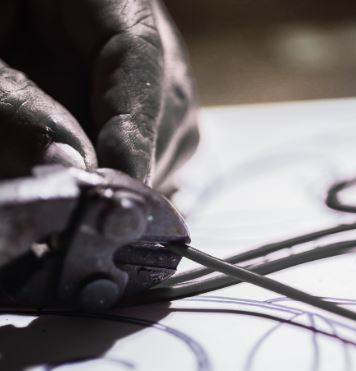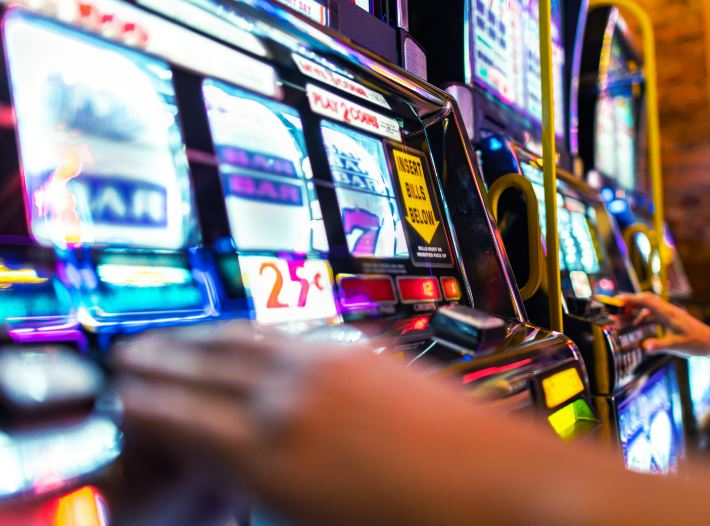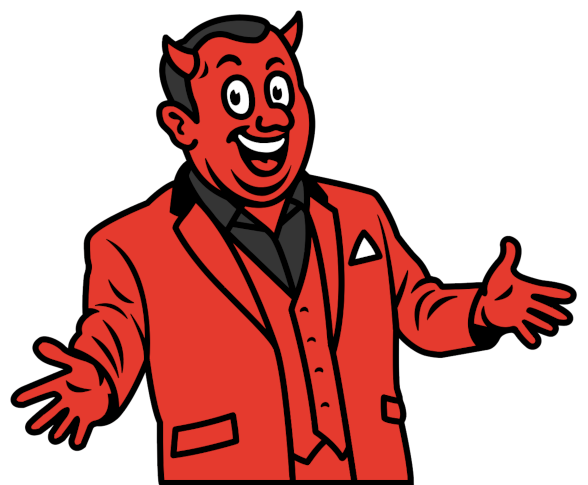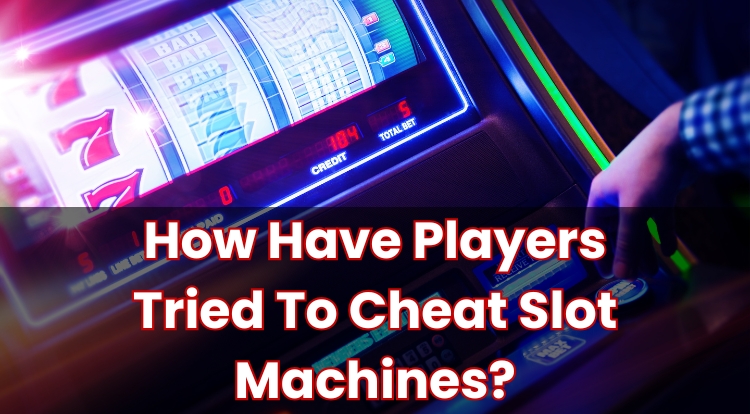What Is the Slot Machine Monkey Paw Tool?
Slot machines can be found in many UK settings, including licensed venues and online platforms. With a wide range of games and terms, it is not unusual to come across phrases that seem unusual. One such term is the “Monkey Paw Tool”.
If you have seen this mentioned online or in a video and wondered what it means, this guide explains its background. It also looks at how slot machines have changed over time and how regulation and technology protect players on licensed sites. Read on to learn more.
Slot Machine Monkey Paw Tool Cheat Explained

The “Monkey Paw Tool” refers to a method that was reportedly used to cheat mechanical slot machines. It was described as a bent piece of metal or wire, designed to reach inside the coin mechanism. On certain early machines, using such a tool could sometimes trigger a payout by interfering with how the internal parts functioned.
These types of methods relate to older, mechanical slot machines. Games in the UK today are built around software. Online and land-based slots must use Random Number Generators (RNGs) that are tested by approved third parties. These systems use computer code to determine outcomes rather than physical gears or levers. A device such as a Monkey Paw has no ability to affect a digital result.
Attempting to cheat is illegal and can carry serious legal consequences. Licensed machines and games have protective features such as sealed compartments, encryption, and built-in monitoring. Online games are logged and reviewed regularly as part of licensing requirements.
If you decide to try your hand at slot machines, remember to do so within your means and responsibly—never wager more than you can afford to lose.
Tommy Carmichael: The Man Behind The Monkey Paw
Tommy Carmichael was an American individual known for creating devices intended to manipulate slot machines. One of the tools most often attributed to him is the “Monkey Paw”. This was developed in the late 20th century to exploit weaknesses in specific coin-operated machines.
At the time, many slot machines used mechanical systems to process coins and trigger rewards. Tools like the Monkey Paw could sometimes bypass these mechanisms, leading to unauthorised payouts. In response, casino operators and manufacturers began to improve machine security, using electronics that were more difficult to access or manipulate.
Over time, mechanical machines were replaced by software-based models with secure internal components. These systems include protections to detect tampering and use RNGs that cannot be influenced by external tools. These changes played a key role in preventing similar methods from working in future machines.
Some reports state that Carmichael went on to develop other tools, such as the light wand and top-bottom joint, before being banned from casinos. He was later placed on a permanent exclusion list in Nevada and was no longer allowed to enter gambling premises. These developments show how the industry responded to protect against tampering.
Did The Monkey Paw Tool Actually Work?
There are accounts that the Monkey Paw and similar devices had some limited success on specific types of mechanical cabinets. The tool may have caused the coin mechanism to register a false input, which in certain cases led to a payout. However, the tool only worked on certain machines with particular vulnerabilities. As those machines were upgraded, the effectiveness of such devices decreased quickly.
Current slot machines use software to determine outcomes. Each spin is generated by an RNG that operates independently of the visible machine parts. The cabinet itself is not responsible for producing a result. A tool inserted into a coin slot cannot interact with the system in a way that changes the result.
The topic may be of interest from a historical perspective. It highlights how much has changed in slot machine development and regulation over time.
How Do Casinos Prevent Cheating on Slot Machines?
Slot machine protections are designed and built into both the hardware and software. For land-based machines, this includes secure cabinets, individual keys, and detection sensors that can identify attempts to open or tamper with internal components. Staff use regular audits and maintenance checks to spot anything out of the ordinary.

For online slots, security is based around the software and server environment. Data is encrypted, activity logs are kept, and accounts are monitored in line with regulatory requirements. All approved games must undergo testing by independent laboratories to confirm that RNGs work properly and produce outcomes that cannot be predicted or manipulated.
These security layers are part of the licensing conditions required by the UK Gambling Commission (UKGC). You can check a gambling website’s licence status using the UKGC public register. If a site is licensed, it must follow the rules that help ensure fairness, transparency and protection for players.
Why You Shouldn’t Try To Cheat on Slots
Trying to cheat at gambling is against the law in the UK. The Gambling Act 2005 makes it a criminal offence to interfere with machines or software in an attempt to alter outcomes. Penalties may include prosecution, fines or being banned from gambling premises and online operators.
Modern machines are designed to prevent interference. All UKGC-licensed games are random and tested to confirm this. There is no pattern or device that can make a slot pay out or increase the chance of a win.
If you are looking for support with gambling behaviour or decision-making, several organisations provide free, impartial advice. These include GamCare, BeGambleAware, and the National Gambling Helpline. Their services are available to anyone who may benefit from help.
Play Slot Machines Online at 666 Casino
If you are interested in playing online slots, 666 Casino has a range of options for UK players. You can browse different game styles, such as three-reel slots, video slots, or those that include features like cascading symbols or bonus rounds. Filters by developer or feature may help you find games that match your preferences.
All slots on the site are licensed under the UKGC. Each game includes published information such as RTP, volatility, paylines, and minimum and maximum stake levels. These figures are based on long-term design and testing. Outcomes for individual sessions may differ.
If you choose to explore the game library, you can do so knowing that the titles available meet UK standards for licensing and fairness. The Monkey Paw Tool belongs to a past era—with today’s safeguards and game information, you can focus on what each slot offers in its design and features.
**The information provided in this blog is intended for educational purposes and should not be construed as betting advice or a guarantee of success. Always gamble responsibly.
*All values (Bet Levels, Maximum Wins etc.) mentioned in relation to these slot games are subject to change at any time. Game features mentioned may not be available in some jurisdictions.





